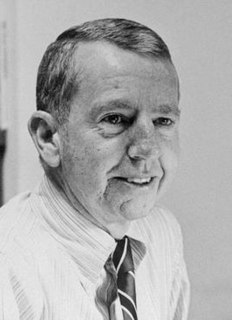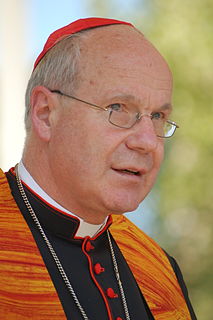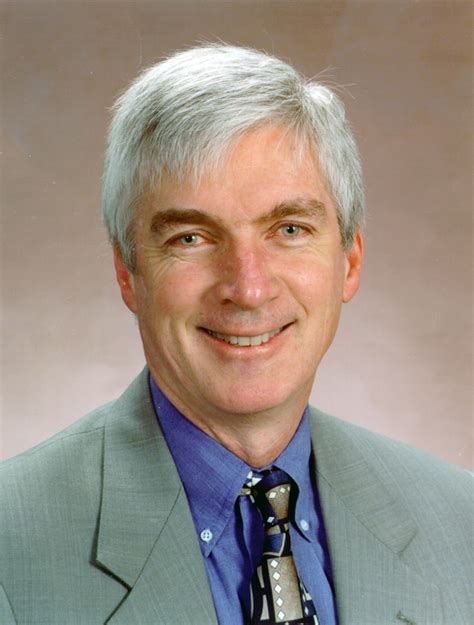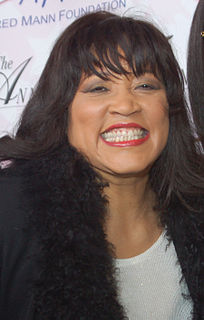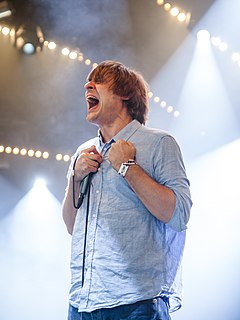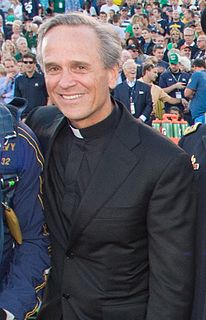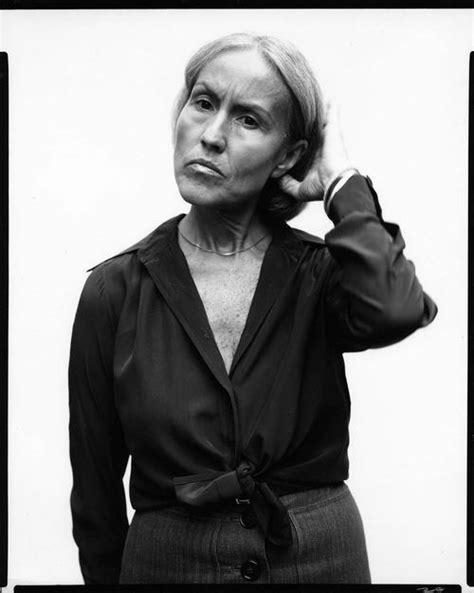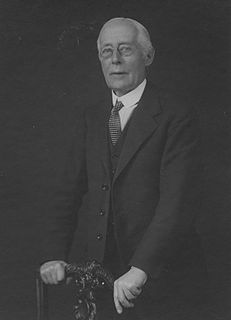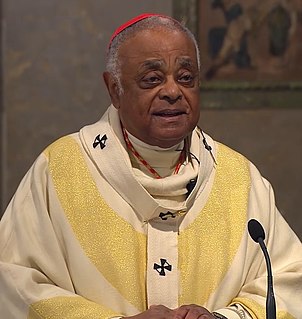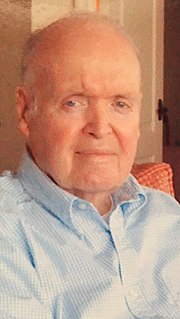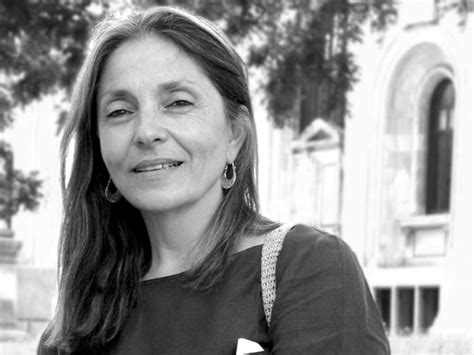Top 349 Francis Quotes & Sayings - Page 6
Explore popular Francis quotes.
Last updated on December 20, 2024.
The only remarkable thing about Francis Ford Coppola's The Godfather, Part II is the insistent manner in which it recalls how much better his original film was. Even if Part II were a lot more cohesive, revealing and exciting than it is, it probably would have run the risk of appearing to be the self-parody it now seems…Its insights are fairly lame at this point.
I am convinced Pope Francis' Exhortation can help. The effort must be made to read it because an exhortation can only help if you know it. It is valuable to know the work. It is so rich and I can only encourage our pastors and our communities to work on it, study it, read it, and taste the joy of this beautiful document.
He will long be remembered as one of the great Christian thinkers of our century, with a childlike faith and a profound compassion toward others. It can rarely be said of an individual that his life touched many others and affected them for the better; it will be said of Francis Schaeffer that his life touched millions of souls and brought them to the truth of their creator.
These [conservative] people, if they're Americans, look back on the last 35 years of our ecclesial experience and take heart from that. The dramatic reform of seminaries continues. The priests and bishops who take their pastoral model from John Paul II will continue to do so, perhaps learning a lesson or two from Francis along the way - and they'll be the overwhelming majority of the Church's ordained ministers ten, twenty, thirty years from now.
Did I ever tell you,’ said Lymond pausing on the afterthought, on his way to the flap, ‘that that aunt of mine once hatched an egg?’ He paused, deep in thought, and walked slowly to the door before turning again. His lordship of Aubigny, staring after the vanishing form of his brother, received the full splendour of Lymond’s smile. ‘It was a cuckoo,’ said Francis Crawford prosaically, and followed Lennox out.
Directors who have inspired me include Billy Wilder, Federico Fellini, lngmar Bergman, John Ford, Orson Welles, Werner Herzog, Stanley Kubrick, Alfred Hitchcock, Francis Ford Coppola and Ernst Lubitsch. In art school, I studied painters like Edward Hopper, who used urban motifs, Franz Kafka is my favorite novelist. My approach to film stems from my art background, as I go beyond the story to the sub-conscious mood created by sound and images.
It would be wrong of me to suppose that just because I can form private mental images, that everyone can. As Francis Galton and William James long ago showed, a small proportion of adults-and some of these extremely intelligent-are unable to form such visual images. Berkeley's point is that it would be equally arrogant for these non-thinkers or non-image formers to claim that everyone is like them in the relevant respect. The temptation to pontificate in that way reveals a narrowness and unwillingness to see the world from another perspective.
Martin Scorcese is probably America's greatest living director, and while he is not a titan like John Ford or Alfred Hitchcock or Federico Fellini, he is certainly consistently more interesting than Steven Spielberg, Brian de Palma, Francis Ford Coppola or Woody Allen. Even a failure like Gangs of New York or a curiosity like The Aviator is more interesting and ambitious than Munich, The Black Dahlia or Scoop.
To this day, we see all around us the Promethean drive to omnipotence through technology and to omniscience through science. The effecting of all things possible and the knowledge of all causes are the respective primary imperatives of technology and of science. But the motivating imperative of society continues to be the very different one of its physical and spiritual survival. It is now far less obvious than it was in Francis Bacon's world how to bring the three imperatives into harmony, and how to bring all three together to bear on problems where they superpose.
The good Bishop of Assisi expressed a sort of horror at the hard life which the Little Brothers lived at the Portiuncula, without comforts, without possessions, eating anything they could get and sleeping anyhow on the ground. St. Francis answered him with that curious and almost stunning shrewdness which the unworldly can sometimes wield like a club of stone. He said, 'If we had any possessions, we should need weapons and laws to defend them.
The hope is that papal calls for a New Pentecost, which go back to St. John XXIII, and papal calls for a New Evangelization, which go back to Vatican II and especially to St. John Paul II, can come together. Pope Francis' vision is to bring together the reality of a New Pentecost with the urgency of a New Evangelization.
As for the spirit of poverty, I do not remember any moment when it was not in me, although only to that unhappily small extent compatible with my imperfection. I fell in love with Saint Francis of Assisi as soon as I came to know about him. I always believed and hoped that one day Fate would force upon me the condition of a vagabond and a beggar which he embraced freely. Actually I felt the same way about prison.
At the very simplest, I think as Van Gogh said and St Francis would have said, we must find nature. Just to be in the presence of nature your feelings and 'little seedlings' start to awake. So if we disassociate ourselves from God we cut nature out, too. More and more we turn nature into a commodity, into eco-tourism. But we must integrate it into the way people live every day.
The religious geniuses of all ages have been distinguished by this kind of religious feeling, which knows no dogma and no God conceived in man's image; so that there can be no church whose central teachings are based on it. Hence it is precisely among the heretics of every age that we find men who were filled with this highest kind of religious feeling and were in many cases regarded by their contemporaries as atheists, sometimes also as saints. Looked at in this light, men like Democritus, Francis of Assisi, and Spinoza are closely akin to one another.
Pope Francis said the use of contraception could be justified in regions hit by the Zika virus; a stance that could reignite a debate over the church's prohibition of the use of condoms to stop the spread of the AIDS virus. The pope also criticized Republican presidential candidate Donald Trump as 'not Christian' for his immigration stance, and broke with his predecessors by suggesting that Catholic lawmakers are free to vote for same-sex marriage and civil unions if they want to.
Now Pope Francis on his overnight flight back to Italy explains how contraception can be justified. This is the pope, the Vicar of Christ, the Catholic Church explaining how contraception could be justified. And then he rips into capitalism and the American immigration policies while at the Mexican border before getting on his plane to go back to Italy.
Francis Coppola was very generous. We got paid a lot of money and he saw us every day, took us out every night. It was just a lot. Richard Gere was an absolute gentleman. Gregory Hines. You know, I worked with some giants and they were just so smooth. And it was the '80s. That's when people had a lot of money and it was okay to to hang out and be crazy.
Up until the late unpleasantness of the Civil war, then, the right of secession was more or less taken for granted in many quarters, and there has never been any amendment or even a Supreme Court decision saying it's improper. - Samual Francis, Secession May Be Legal But Not Expedient, Conservative Chronicles
If there be any among us who wish to dissolve the Union or to change its republican form, let them stand undisturbed, as monuments of the safety with which error of opinion may be tolerated where reason is left free to combat it.
We all stood and gathered our backpacks and I looked at the floor around my chair to make sure I hadn’t dropped anything. I was terrified of unwittingly leaving behind a scrap of paper on which were written all my private desires and humiliations. The fact that no such scrap of paper existed, that I did not even keep a diary or write letters except bland, earnest, falsely cheerful ones to my family (We lost to St. Francis in soccer, but I think we’ll win our game this Saturday; we are working on self-portraits in art class, and the hardest part for me is the nose) never decreased my fear.
I swear on St. Francis, the patron saint of all animals.” Seeing Poppy’s hesitation, Beatrix added enthusiastically, “If a band of pirates kidnapped me and took me to their ship and threatened to make me walk the plank over a shiver of starving sharks unless I told them your secret, I still wouldn’t tell it. If I were tied by a villain and thrown before a herd of stampeding horses all shod in iron, and the only way to keep from being trampled was to tell the villain your secret, I—
As I stood with her on the platform - she impatient, tapping her foot, leaning forward to look down the tracks - it seemed more than I could bear to see her go. Francis was around the corner, buying her a book to read on the train. 'I don't want you to leave,' I said. 'I don't want to, either.' 'Then don't.' 'I have to.' We stood looking at each other. It was raining. She looked at me with her rain-colored eyes. Camilla, I love you,' I said. 'Let's get married.
I hate Gucci,' said Francis. 'Do you?' said Henry, glancing up from his reverie. 'Really? I think it's rather grand.' 'Come on, Henry.' 'Well, it's so expensive, but it's so ugly too, isn't it? I think they make it ugly on purpose. And yet people buy it out of sheer perversity.' 'I don't see what you think is grand about that.' 'Anything is grand if it's done on a large enough scale,' said Henry.
The most widely discussed formulation of [the One World model] was the "end of history" thesis advanced by Francis Fukuyama. "We may be witnessing," Fukuyama argued, "the end of history as such: that is, the end point of mankind's ideological evolution and the universalization of Western liberal democracy as the final form of human government." The future will be devoted not to great exhilarating struggles over ideas but rather to resolving mundane economic and technical problems. And, he concluded rather sadly, it will all be rather boring.
There's love and there's romantic love. The Greeks had different words for different kinds of love. And we just got "love." I don't know what you would call the other kinds - maybe brotherly love, Christian love, the love of Saint Francis, love of everyone and everything. Then there's romantic love, which, by and large, is a pain in the ass, a kind of trauma.
Francis of Assisi tells us we should work to build peace. But there is no true peace without truth! There cannot be true peace if everyone is his own criterion, if everyone can always claim exclusively his own rights, without at the same time caring for the good of others, of everyone, on the basis of the nature that unites every human being on this earth.
As Pope Francis says in Amoris laetitia, pastors must "make room for the consciences of the faithful, who very often respond as best they can to the Gospel amid their limitations, and are capable of carrying out their own discernment in complex situations. We have been called to form consciences, not to replace them" (no. 37). As for the former statement, we should only be afraid if the church is smaller because of our failure to welcome people and preach the Gospel in a way that touches their hearts.
Perhaps the dumbest of these story lines is that [Pope] Francis has re-opened conversation and debate in a Church that had been closed and claustrophobic for 35 years under John Paul II and Benedict XVI. I defy anyone who, over the last 35 years, has spent time on the campuses of Notre Dame or Georgetown, or who has read the National Catholic Reporter, or who has gone to a meeting of the Leadership Conference of Women Religious, to make that claim without experiencing a twinge of conscience that says, "I should wash my mouth out with soap."
I will never get tired of looking at works by Pablo Picasso. I will never get tired of looking at work by Francis Bacon or Henry Moore or Francisco Goya. You cannot tire of the work these people have made because you can look it over and over again - the same thing - and always see something different.
A lot of young painters love to incorporate celebrity. One idea of being a painter is to use what's happening at the time. Velázquez was painting of his time. And so was Rembrandt. And Francis Bacon was painting his time in London. He was a real mover, but he saw the insect in the rose. But yes, when I do a painting, I want to take the "I did this" out of it. That's why I started using chance, like the markings on the wood. I never wanted to compose.
Christianity is actually "true Truth," as Francis Schaeffer used to put it. God really does exist, Heaven actually is real (along with Hell), Jesus really did live and He did the things the historical records - the Gospels - say He did, the resurrection of Christ really happened, and there really is hope each of us can count on for "the kind of perfect world our hearts have always longed for."
The gospel is like a caged lion,' said the great baptist preacher Charles Spurgeon. 'It does not need to be defended, it simply needs to be let out of it's cage' Today, the cage is our accommodation to the secular/sacred split that reduces Christianity to a matter of personal belief. To unlock the cage, we need to become utterly convinced that, as Francis Schaeffer said, Christianity is not merely religious truth, it is total truth- truth about the whole of reality.
In his anti-Darwinian book... (and eponymously named The Neck of the Giraffe ), Francis Hitching tells the story... "The need to survive by reaching ever higher for food is, like so many Darwinian explanations of its kind, little more than a post hoc speculation." Hitching is quite correct, but he rebuts a fairy story that Darwin was far too smart to tell - even though the tale later entered our high school texts as a "classic case" nonetheless.
The popularity of the famous device of the use of lands into England is said to be largely due to the mendicant friars of the then new Orders of St. Dominic and St. Francis, who, arriving in this country, in the first half of the thirteenth century, found themselves hampered by their own vows of poverty, no less than by the growing feeling against Mortmain in acquiring the provision of land absolutely necessary for their rapidly developing work.
But why should you be interested in me?" Good question. I can’t explain it myself right this moment. But maybe – just maybe – if we start getting together and talking, after a while something like Francis Lai’s soundtrack music will start playing in the background, and a whole slew of concrete reasons why I’m interested in you will line up out of nowhere. With luck, it might even snow for us.
Jose Ortega y Gasset says, "Tell me the landscape in which you live, and I will tell you who you are." Asserting that character/community is formed, at least in part, by the physical landscape in which he/she resides. And this is underscored by the fact - and not all that long ago - that people and place were, in fact, synonymous: Sapho of Lesbos, for example. Or my middle namesake, Saint Francis of Assisi. Jesus of Nazareth.
It's always been very important for me to be surrounded by people. It's never been enough for me to be successful alone. I want to be around people my own age who are also doing things I can learn from. And something Francis Ford Coppola said when we were doing the movie was, "If you learn something about people when you do dinner with them every week, you'll learn a lot more if you play softball with them every week." This is us learning what the climate is creatively among us.
Ethics has not only to do with mankind but with the animal creation as well. This is witnessed in the purpose of St. Francis of Assisi. Thus we shall arrive that ethics is reverence for all life. This is the ethic of love widened universally. It is the ethic of Jesus now recognized as a necessity of thought...Only a universal ethic which embraces every living creature can put us in touch with the universe and the will which is there manifest.
That Francis Bacon retains his reputation gained, is not strange to any that knows him. The unusual words wherewith he had spangled his speech, were rather gracious for their propriety than strange for their novelty, and like to serve both for occasions to report and means to remember his argument. Certain sentences of his , somewhat obscure, and as it were presuming upon their capacities will, I fear, make some of them rather admire than commend him. In sum, all is as well as words can make it, and if it please Her Majesty to add deeds, the Bacon may be too hard for the Cook.
If [Pope's Francis] media-generated popularity, fragile as that may turn out to be when the world discovers that the pope is really a Catholic, opens windows of possibility for explaining that divine mercy leads us to the truths God revealed to us (and inscribed into the world and into us), then his reanimation of the papacy will advance the "Church in permanent mission" for which he called in Evangelii Gaudium, which is the grand strategy document of his pontificate.
IMDB is ridiculous... First of all, they had me down as my height being 5ft 7ins. I'm 5ft 10ins. But now they've got me down as 6ft 1ins and three quarters. They also have me down as doing Voyage of the Dawn Treader. I wish they had me down as doing Francis Ford Coppola's next film. That would be a great rumour.
If those who voice opposition to Pope Francis and the direction in which he is leading the church come from other nations but their statements are published on American media platforms, it may appear that they originate in this country or reflect our sentiments. We have our own dissident voices to be sure, but too frequently every challenging voice that criticizes the Holy Father and is broadcast on American media is identified as American in origin.
Francis seems familiar because Catholics have already known him in the Vatican II priests who have been their pastors and sacramental ministers over the years since that council brought new life to an old church. Catholics have known him in the bishops and priests who brought the spirit of the council to their dioceses and parishes.
At its best, the US Open demands straight drives, crisp iron shots, brilliant chipping and putting, and strategic position play. Plus the patience of St. Francis and the will of Patton. At its worst, the Open eradicates the difference in ability between a Tom Purtzer and a Tom Watson and throws both in the same jail of high rough and high risk shots. This is the disturbing tendency in the Opens of the seventies and eighties, one which worries everyone in golf.
[Pope Francis] continued to focus on migrants. He visited the Greek island of Lesbos, which was the front line of the European migrant crisis. And a month later, he accepted a prestigious European Union prize, but he scolded Europe for its treatment of migrants. And in a speech echoing Martin Luther King, he said I have a dream of a Europe where being a migrant is not a crime. So, yeah, he showed he can be quite outspoken on political issues.
Regarding social order, [Francis] Fukuyama writes, "The systematic study of how order, and thus social capital, can emerge in spontaneous and decentralized fashion is one of the most important intellectual developments of the late twentieth century." He correctly attributes the modern origins of this argument to F. A. Hayek, whose pioneering contributions to cognitive science, the study of cultural evolution, and the dynamics of social change put him in the forefront of the most creative scholars of the 20th century.
Dawkins asserts that final causes and design don't really exist. Unguided evolution explains it all. Francis Crick thought the same thing but was afraid people would be misled by what they actually saw. So he issued this warning: "Biologists must constantly keep in mind that what they see was not designed, but rather evolved." What? A warning to ignore the obvious? Absolutely. Because if we don't ignore the obvious, we might be tempted to follow common sense and attribute the "appearance" of design to actual design.
I love crosscut parallel storytelling, like we did in Blue Valentine. I love how Alejandro González Iñárritu has done it, and Quentin Tarantino, and Francis Ford Coppola, and all the way back to D.W. Griffith - this parallel editing is an effective way to tell stories. It's like juggling, like keeping a lot of balls in the air and seeing how they come down.
The whole story of the universe is implicit in any part of it. The meditative eye can look through any single object and see, as through a window, the entire cosmos. Make the smell of roast duck in an old kitchen diaphanous and you will have a glimpse of everything, from the spiral nebulae to Mozart's music and the stigmata of St. Francis of Assisi. The artistic problem is to produce diaphanousness in spots, selecting the spots so as to reveal only the most humanly significant of distant vistas behind the near familiar object.
